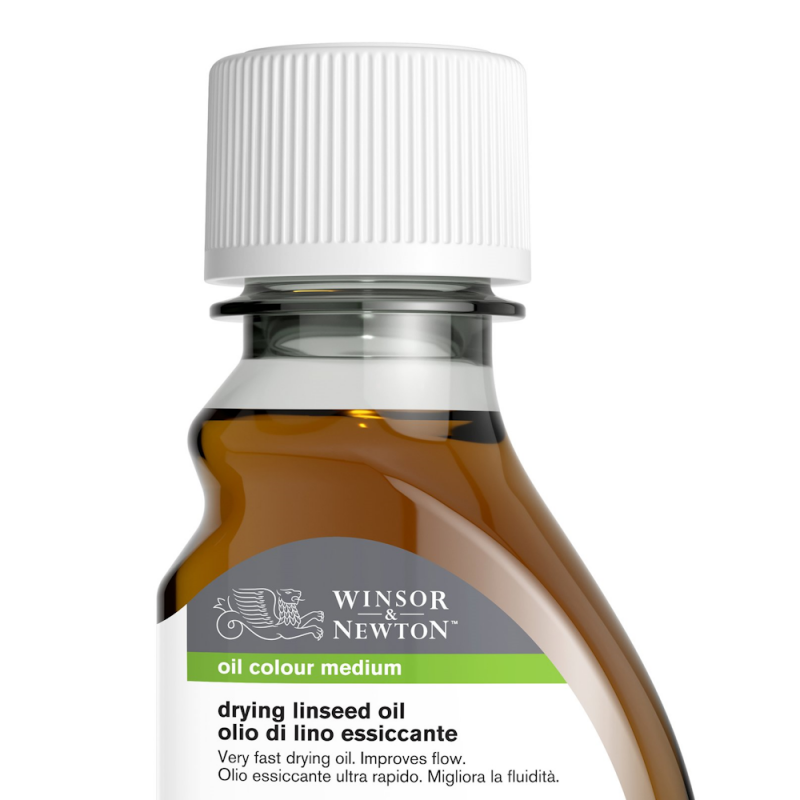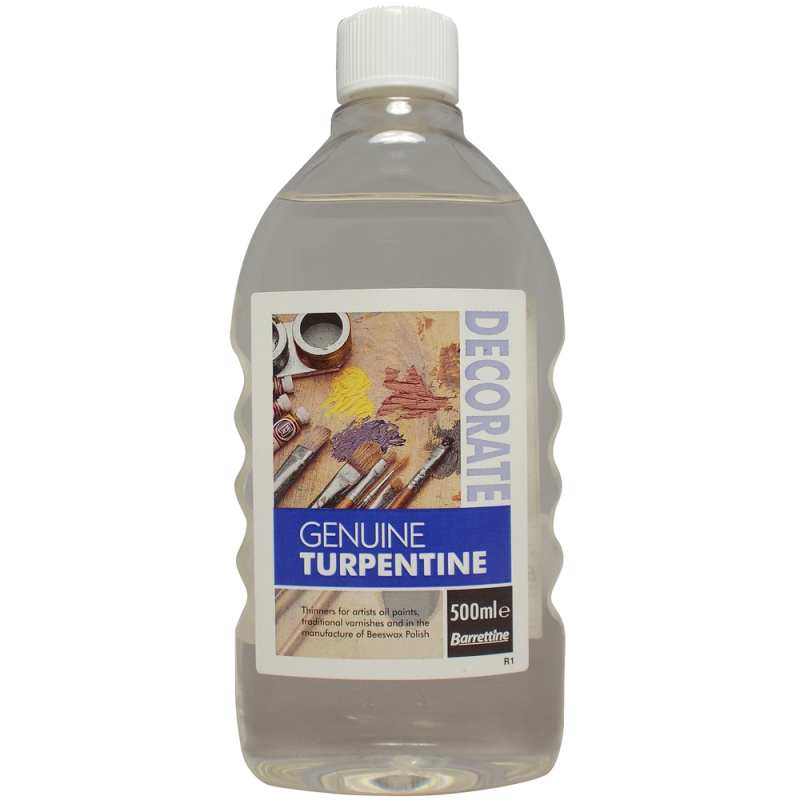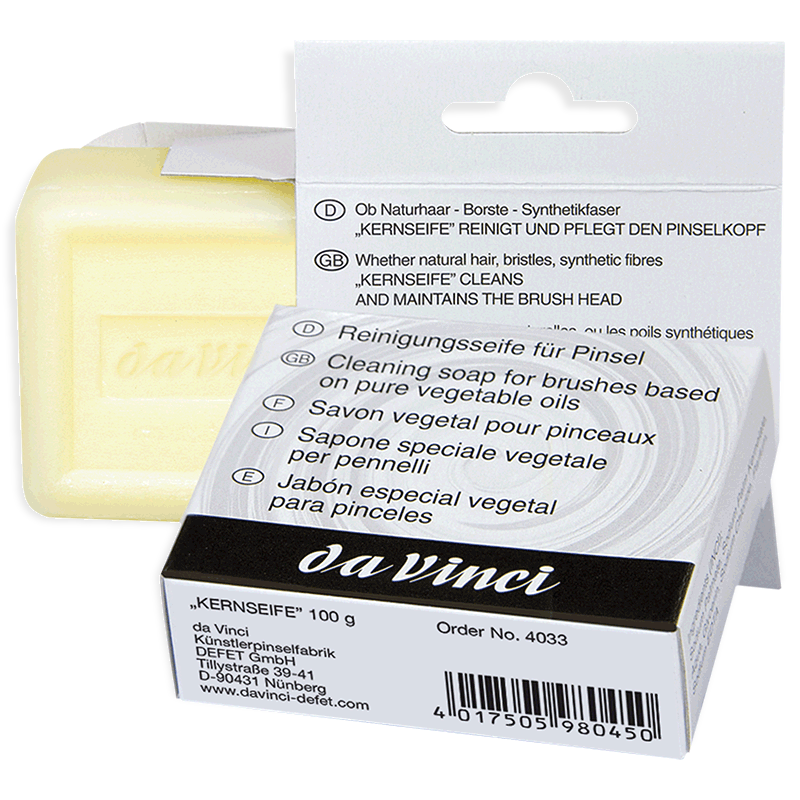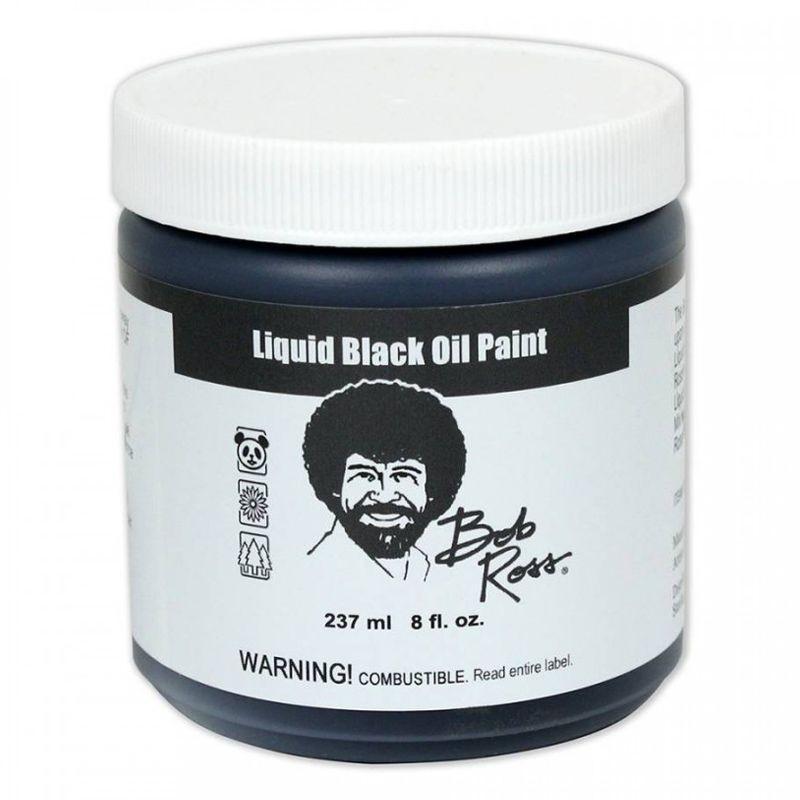We're sure you would agree that a good set of oil brushes is one of the most essential tools in any painter's collection.
As such, taking care of and maintaining those brushes is paramount to keeping tight control over your materials (and by extension, the quality of artwork you're able to produce). Of course, as with all things, over time you may begin to notice discolouration or drying out of the bristles, particularly if you're stripping the oil from them using solvent-based cleaners.
To help prevent this, we’ve put together this quick guide. If you want to make things easier on yourself, each time you finish working on a piece of art, you should aim to clean your brushes thoroughly & as soon as possible. Removing any paint before it dries is by far the easiest way to tackle this.
Planning on using the paint brushes again the next day and don’t want to complete the full cleaning process? You could always choose to wipe them clean & dip them into some oil (Linseed Oil for instance), but be aware that this will slow the drying process of the oil paint.
What will you need?
- Access to clean water
- Paper towels
- Gloves (especially when solvents are involved)
- Solvent (such as Barrettine Genuine Turpentine)
- Natural brush soap, suitable for oil paint (such as Da Vinci Brush Soap)
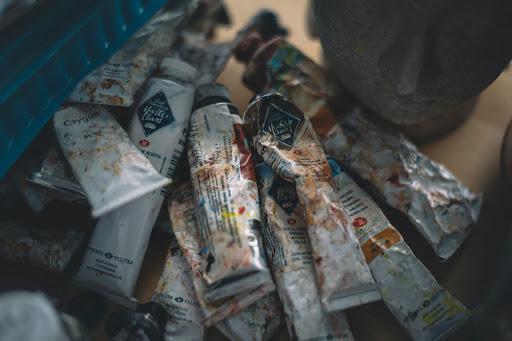
1. Remove any excess paint by dipping your brushes into the solvent.
2. Give them a gentle wipe using the paper towels.
3. Rinse the brushes in warm water.
4. Repeat Step 3, until you're sure that the majority of the paint has been removed.
5. Repeat Step 1, dipping your brushes into the solvent once again.
6. Work up a lather in your brush soap with the brushes.
7. Again, repeat Step 3, making sure the water runs clear before you finish.
8. Dry your brushes using a paper towel (there should be no paint remaining at this point).
Congratulations, your brushes are now ready to be stored away until next time! Always remember to rest the brushes on a holder & ensure the bristles aren't resting against anything that could cause them to bend.
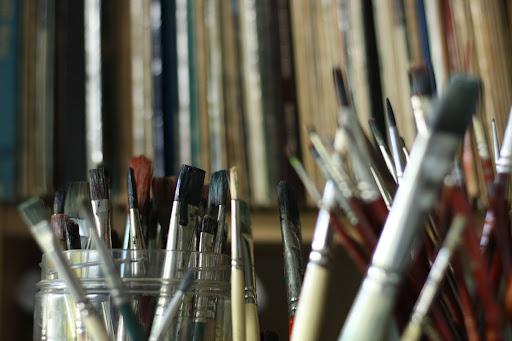
How to clean oil paint brushes with natural cleaners
Would you prefer to avoid using a solvent? Simply follow the 8-step process above, replacing the solvent with linseed oil. Yes, it really is that simple.
If the paint has hardened, one little hint to know is that this can be shifted with some good ol' vinegar. Simply soak your brushes in the condiment for around 2hrs. If the paint is still hard, you can go the extra mile & simmer them in a pan of vinegar for a couple of minutes, then complete the cleaning process above.
If it's been some time, or you're worried that your brushes are beyond help. Fear not, they can be restored using The Masters' Brush Cleaner and Preserver. A product readily endorsed by artists all over the world.
Can you clean oil paint brushes with water?
Water alone isn't enough to shift oil paint from your brushes, we're afraid. Using soaps or solvents is absolutely essential as they work to break the oils down.
If you’re new to oil painting and are keen to gather more tips and tricks, take a look at our blog on mixing oil paints.
< Back to blog




















